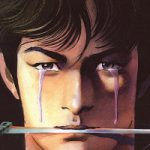Charlie Hebdo
Regions: France

Charlie Hebdo is a French satirical weekly magazine. It was created in 1970 as a successor to monthly Hara-Kiri, banned by the authorities following a controversial headline mocking the recent death of former President Charles de Gaulle. The magazine’s title is a tribute to Peanuts’s character Charlie Brown (as well as an inside joke about Charles de Gaulle). Members of its original team include the now late Gébé, Fred, Jean-Marc Reiser, Wolinski and Cabu. But for lack of a steady readership and because of recurring treasury problems, Charlie ceases to publish in 1981. Ten years later, cartoonists Gébé and Cabu revive the magazine with the help of journalist Philippe Val. Since its creation, Charlie Hebdo has faced many controversies and about fifty lawsuits (which amounts to about one every six months since the magazine’s revival). In 1996, its team unsuccessfully tried to ban far-right party Front national (FN) for its alleged contravention of the Declaration of the Rights of Man and of the Citizen. Nevertheless, the petition gathered no less than 173.000 signatures. In 2012, the party’s current leader Marine Le Pen, sued the magazine and its editorial director, Stéphane Charbonnier, known as Charb, over the publication of a false campaign poster representing her as a pile of excrement in front of a French flag. While Charlie Hebdo defends the “right to blasphemy”, in the words (and drawing) of cartoonist Bernard “Tignous” Velhac, it has been the object of several lawsuits from catholic and Islamic associations. One of them regarded the 2009 “Pope Special” issue. In total, Charlie Hebdo won 75% of the legal proceedings instituted against it. Yet in 2008, veteran cartoonist Siné successfully sued the magazine for unfair dismissal, and went on to create his own paper.
Charlie Hebdo was the target of two terrorist attacks. In 2011, shortly after the publication of its “Sharia hebdo” issue (with prophet Muhammad acting as editor-in-chief), the magazine’s office was fire-bombed and its website hacked. In January 2015, Islamist brothers Saïd and Chérif Kouachi forced their way into the magazine’s new headquarters and killed twelve people, including Charb, Honoré, Tignous, Cabu and Wolinski. This gave way to a massive upsurge of solidarity, with the “Republican marches” on 10-11 January gathering an estimated 4 million people nationwide, around the slogan “Je suis Charlie.” Issue No. 1178, best known as “the survivors’ issue,” sold almost eight million copies, was translated into five languages and distributed in 25 countries. The cover, drawn by Luz, showed a weeping Muhammad holding a “Je suis Charlie” sign under the caption “All is forgiven.” In July 2015, Charlie Hebdo, recently honoured with the Freedom of Expression Courage Award by the PEN American Center amidst much controversy, became the first “solidary press business” which means it has to reinvest in the company at least 70% of its annual benefits and only its contributors will be able to hold shares.
— Marie Trinchant
Further Reading
- Charb. Lettre aux escrocs de l’islamophobie qui font le jeu des racistes. Paris: Les Echappés, 2015.
- http://www.understandingcharliehebdo.com/
- http://time.com/3848046/pen-gala-honors-charlie-hebdo/
- http://www.bbc.co.uk/news/world-europe-30710883
- http://www.lemonde.fr/societe/article/2015/01/08/charlie-hebdo-22-ans-de-proces-en-tous-genres_4551824_3224.html


